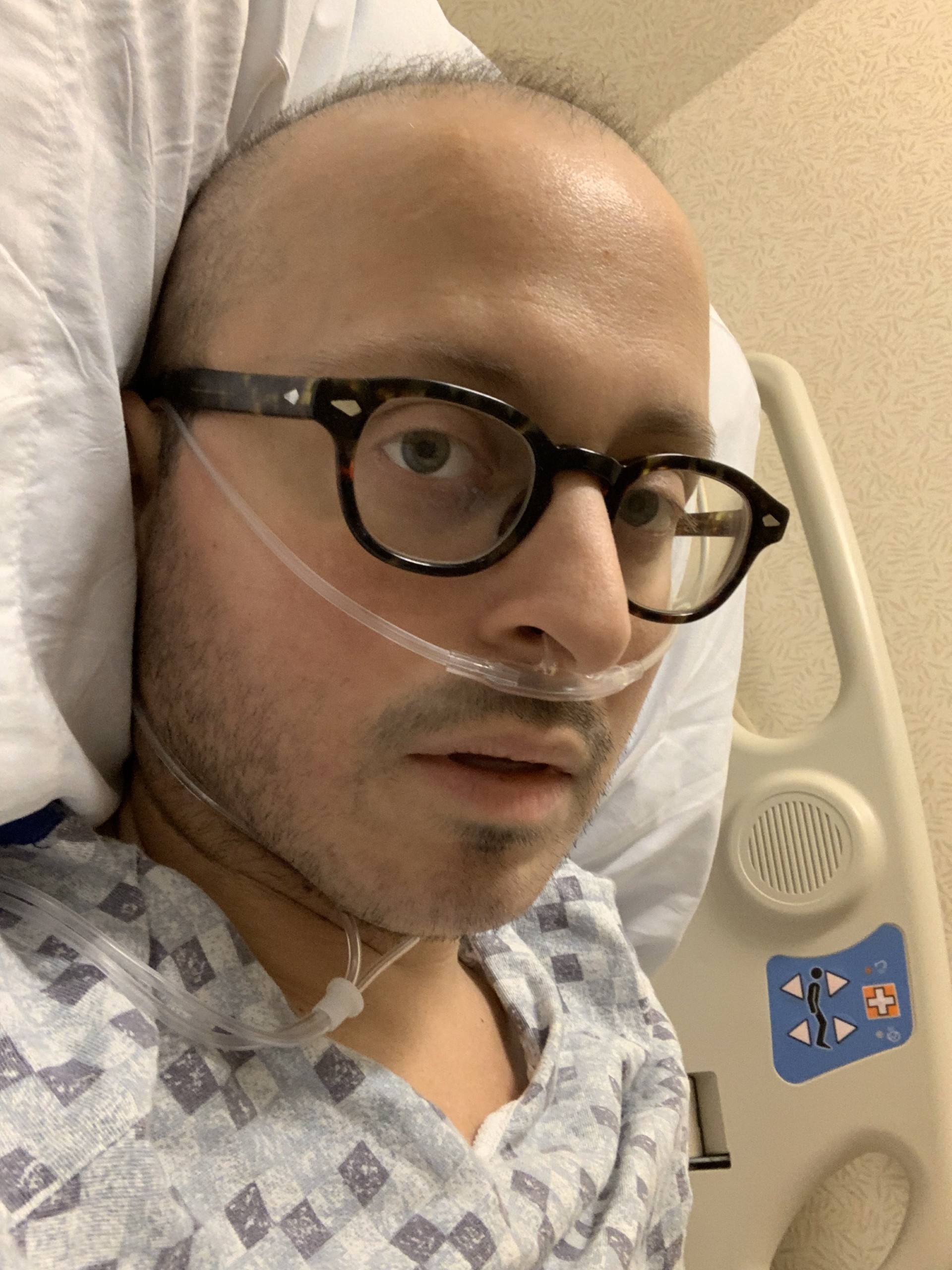
When Charlie Razook’s initial symptoms surfaced, he had been living in Milan, Italy while pursuing his Masters in Business Administration (MBA) degree and interning at Valentino. A persistent rash and skin discoloration in the fall of 2017 sent him to multiple dermatologists, but treatments didn’t work. In January, things escalated. A blood test revealed low platelet levels, and Charlie began feeling increasingly fatigued. A referral to a hematologist brought more questions than answers.
By April, a bout of tonsillitis left him severely depleted. “I lost 10 pounds and felt completely knocked out,” he said. After an emergency room visit, he still had no concrete answers.
Diagnosis and Treatment Journey
A month later, Charlie went to a walk-in clinic, because he was still feeling “crummy”— struggling to sleep and experiencing pain when lying on his chest. The clinic called him the following Monday and told him to go to the nearest hospital. “My lymphocytes (immature white blood cells) had skyrocketed,” he explained. At a university hospital 45 minutes outside Rome, doctors delivered the diagnosis: leukemia.
Within days, Charlie flew back to New York. “They gave me oral chemo for the flight because my levels were so low,” he said. His support network sprang into action—his parents coordinated the admission with doctors at Memorial Sloan Kettering, and a friend from Rome accompanied him on the train back to Milan so he could board his flight.
He underwent pediatric protocols, typically given to younger patients but known to be effective. At 31, he was still eligible. His treatment involved intravenous and oral chemotherapy, steroids, antiviral infusions, and frequent spinal taps to test for cancer in his cerebral spinal fluid. “The first year was super intensive,” Charlie said of his treatment. “It completely disrupted my life. I couldn’t work, couldn’t go to school. I was exhausted, sometimes just watching TV and trying to get in a walk was all I could do.”

Support
Despite the physical toll, it was the mental battle that hit hardest. “I became 13 again,” he said. “I was scared, anxious, negative—fighting with my parents.”
His doctors were optimistic, but Charlie said he was terrified. “The mental anguish was worse than the physical pain.”
Not knowing much about the disease, he leaned on a friend who had gone through Acute Lymphoblastic Leukemia (ALL) treatment. “She calmed me down at my lowest points,” he said. “Talking to other survivors is so important. It can make all the difference.”
With the support of his parents and healthcare providers, including a nurse practitioner who helped track symptoms and treatments, Charlie slowly regained his strength. “My parents were my champions,” he said.
New Beginnings
By September 2019, Charlie returned to business school. As he entered maintenance treatment—monthly visits and oral chemo—he began rethinking his lifestyle. “I wanted to be healthier. I started eating mostly organic and vegan, paying attention to my water source and skin,” he explained. “The biggest organ we have is our skin, and I wondered why there weren’t better options for men.”
That realization led him to launch Jackfir, a certified clean skincare brand. Determined to offer something transparent and effective, Charlie ensured Jackfir was third-party certified—vegan, cruelty-free, 70% organic, and sustainable. “We wanted to back up our claims and signal how serious we were about our standards,” he said.
Advocacy
Charlie also became active in advocacy work through the Leukemia & Lymphoma Society and the Dare to Dream Project. “They connected me with patients going through treatment, just like I had been helped,” he said.
Lobbying in Washington, D.C., he pushed for two pediatric cancer-related bills that were later passed unanimously.
“Every September, for Blood Cancer Awareness Month, Jackfir donates a portion of our sales to research,” he added.
Future Focused and Advice
Now officially cured—though he hesitated to use the word—Charlie is done with monitoring and focusing on giving back. “I just love sharing my story because I’ve been able to turn my diagnosis into something good,” he said. “When I was convinced I would die, I couldn’t imagine being where I am today.”
His advice for others facing similar battles? “Take it day by day. Looking ahead can be overwhelming. It sounds trite, but living in the now is all you can do,” Charlie said.
He also hopes terms like “ALL” and “blood cancer” become household words. “Many cancer therapies come from blood cancer research,” he noted. “We must understand what these terms mean and how they affect us all.”



